PEOPLE
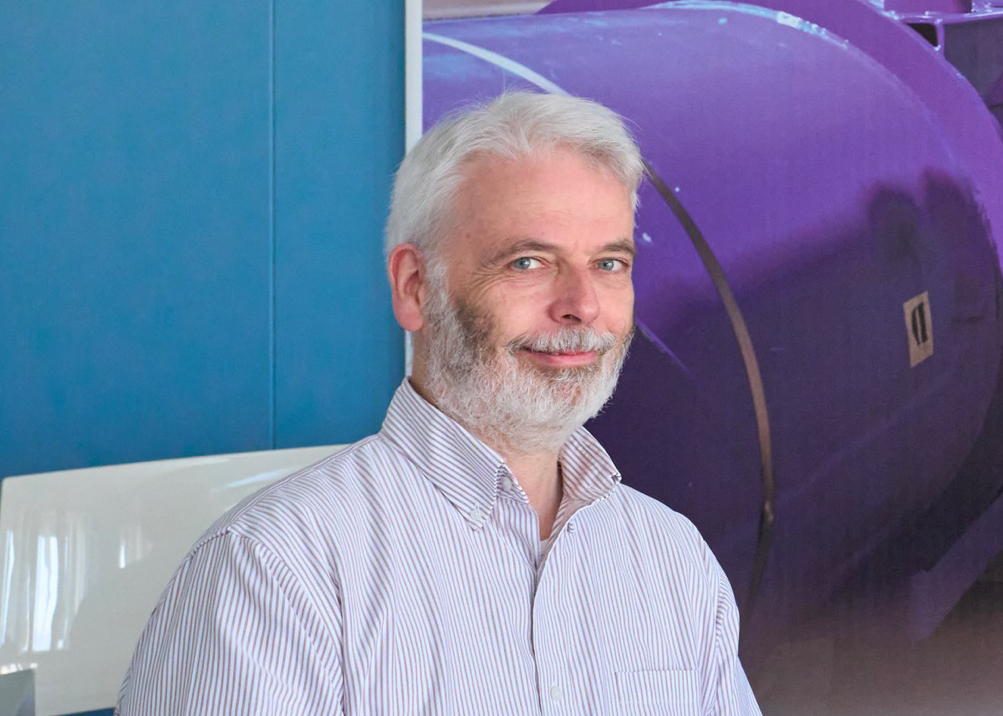
THE MUON COLLIDER: GREAT DISCOVERY POTENTIAL IN A COMPACT ACCELERATOR
Interview with Daniel Schulte, researcher at CERN and study leader for the Muon Collider
In Europe, the particle physics community is investigating the possibility of building a particle collider based on a new technique and which could have enormous potential for discoveries and precision measurements at the energy frontier: the Muon Collider, an accelerator in which muons are accelerated and collided. This project was discussed also in the Italian national workshop “INFN and the European Strategy for Particle Physics”, which was held on May 6 and 7 in Rome and was well attended by the scientific community, including young researchers. During the workshop we met Daniel Schulte, CERN research who is coordinating the feasibility study for the Muon collider.
Can you describe the Muon Collider project?
Typically, in the past, we collided electrons and positrons or protons. While now we are trying to build a Muon Collider. In many ways, muons behave like electrons, but they are heavier and so when they collide, they do not undergo energy losses through synchrotron radiation and they can reach higher collision energies. That's the main advantage of building a Muon Collider.NEWS
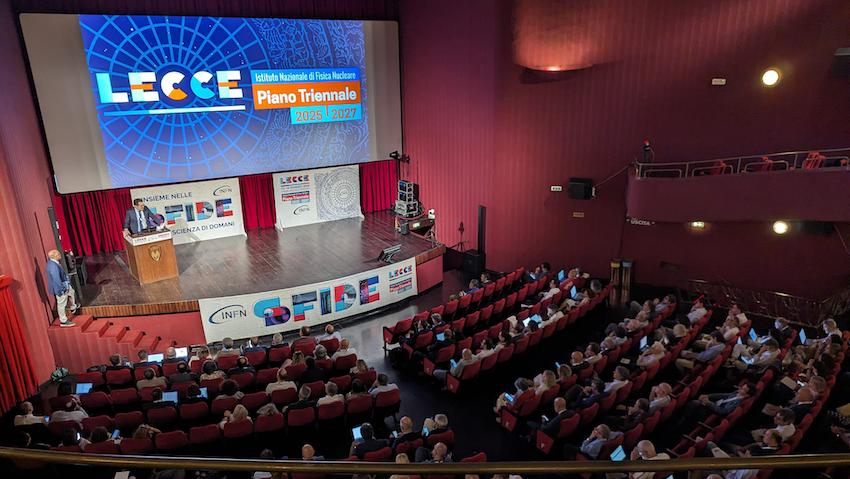
COMMUNITY
THE DAYS OF THE INFN'S THREE-YEAR PLAN 2025-2027 IN LECCE
The INFN 2025-2027 Three-Year Plan Study Days were held on 13 and 14 June. Hosted by the Lecce Division in the year of its 35th anniversary, the days focused on the great challenges. From the path towards a new management and research support model, to the INFN community and the prospects of research, from the European particle physics strategy to the Einstein Telescope, from neutrino physics to artificial intelligence, from quantum technologies to nuclear energy, and the future challenges of theoretical physics.
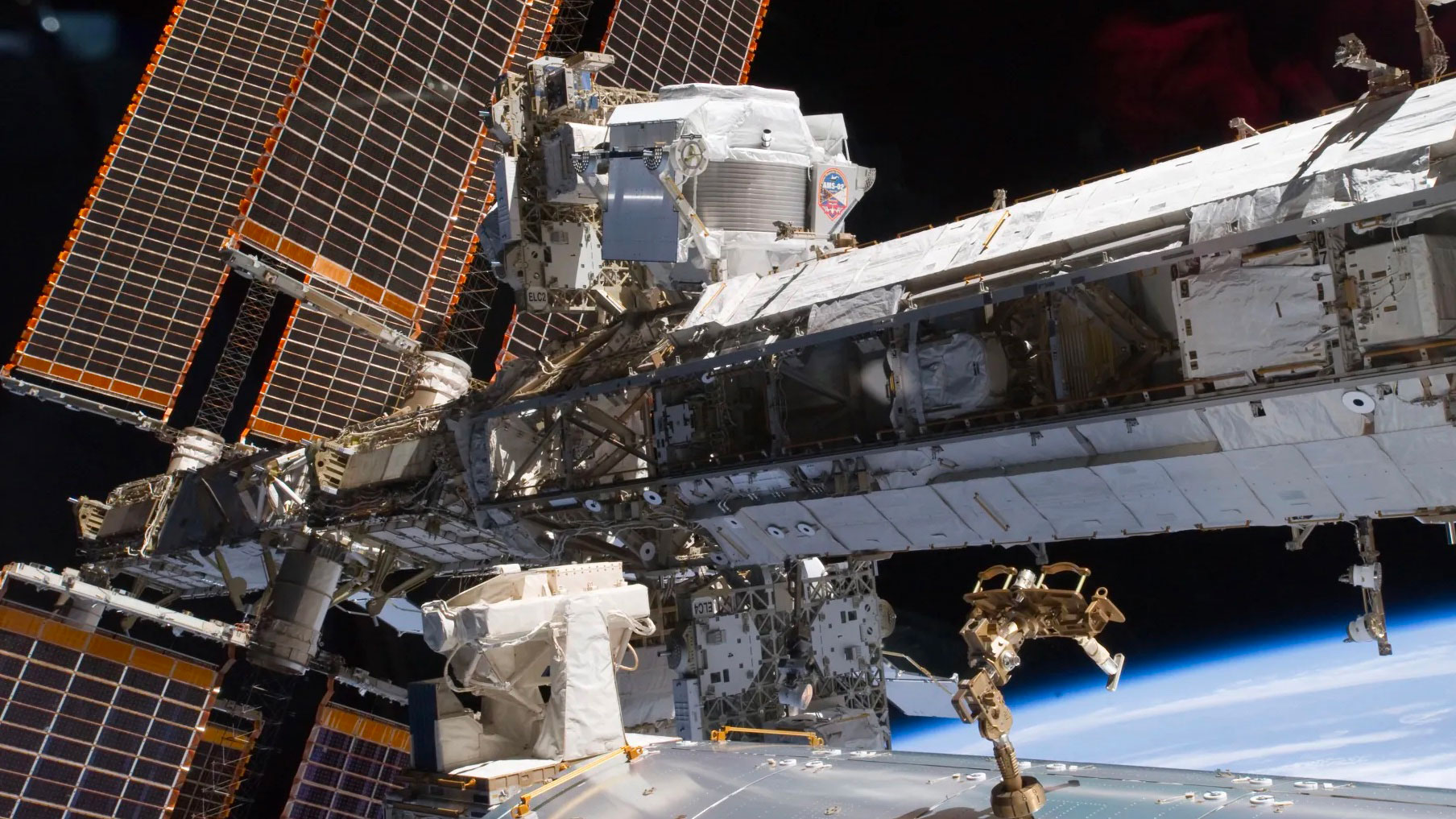
RESEARCH
AMS-02: NEWS ON LIGHT NUCLEUS COMING FROM SPACE
In a paper published on 25 June in the journal Physical Review Letters, the scientific collaboration of the AMS mission operating since 2011 on the International Space Station has cross-referenced the capabilities of several sub-detectors to distinguish particles with similar charge but different mass in cosmic rays.

AWARDS
FEDERICA FABBRI IS AWARDED THE L'ORÉAL-UNESCO PRIZE FOR WOMEN AND SCIENCE 2024
Federica Fabbri, researcher at the University of Bologna and at the INFN, is one of the winners of the 2024 edition of the 'L'Oréal Italia for Women and Science' prize. Established twenty-two years ago by the French cosmetics company L'Oréal, in collaboration with the Italian National Commission for UNESCO, the programme assigns six prizes, each amounting to 20,000 euros, to as many Italian women scientists under 35.
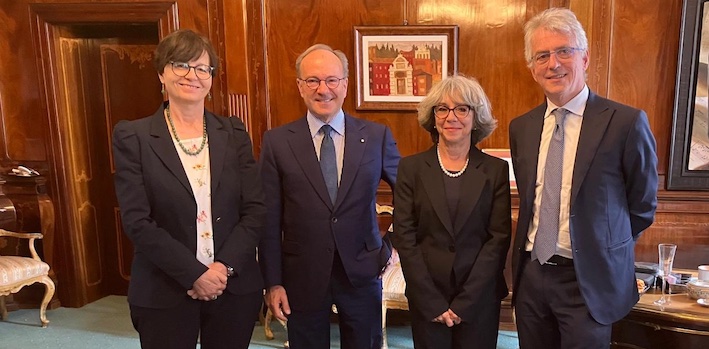
SCIENTIFIC DIPLOMACY
ASSAI, ITALY AND AUSTRIA TOGETHER FOR SCIENTIFIC DIPLOMACY
Promoting and encouraging collaboration, the birth of joint projects, inter-university cooperation and cooperation between research bodies, exchanges between institutions and scientific communities in Italy and Austria: this is the mission of the important scientific diplomacy initiative, promoted by the Embassy of Italy in Austria, ASSAI, the Association for Scientific Exchanges Austria Italy, which brings together Italian academics and researchers living and working in Austria, and which was presented on 4 June at the Embassy in Vienna.
FOCUS
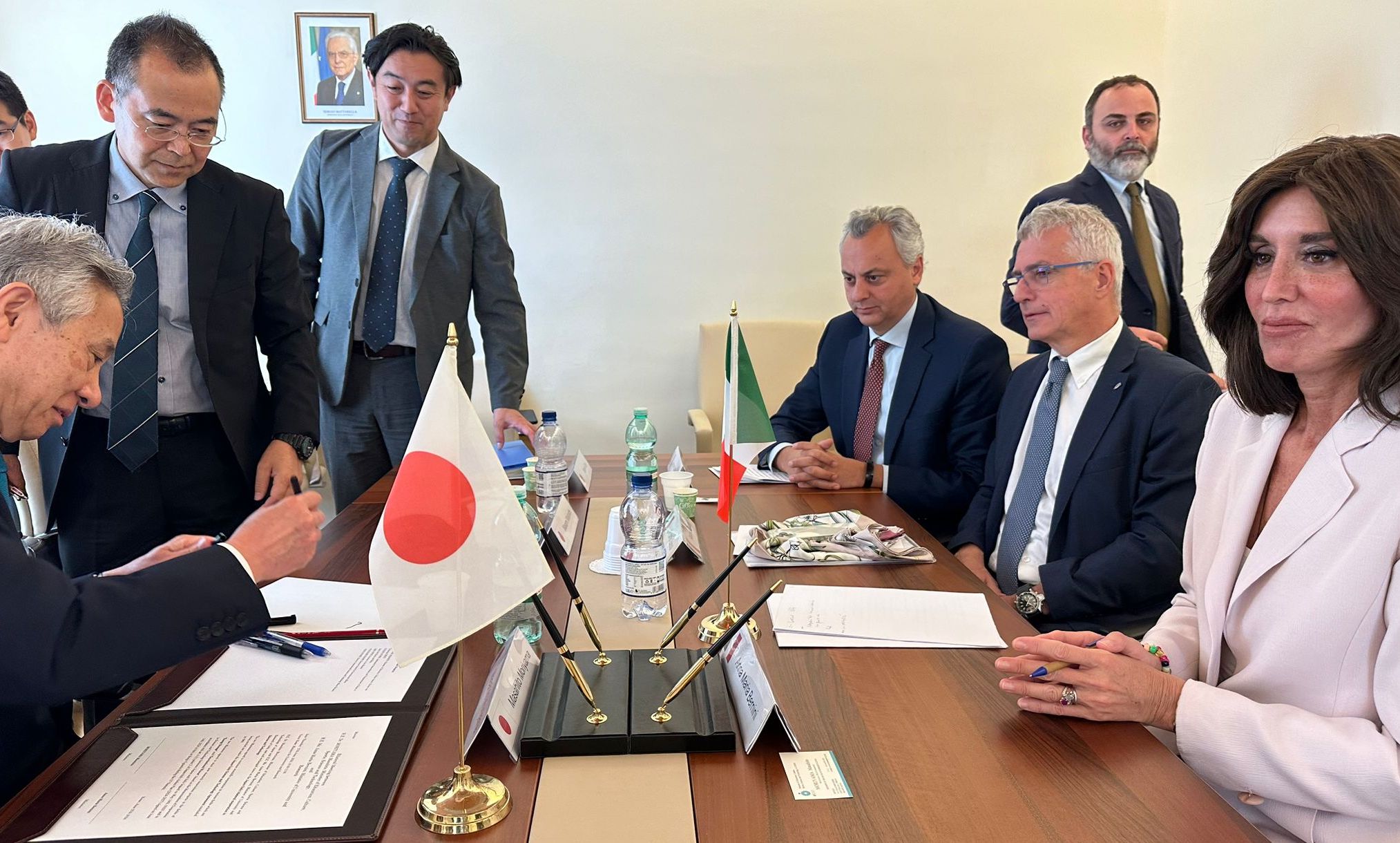 FROM KAGRA TO EINSTEIN TELESCOPE: ITALY-JAPAN AGREEMENT FOR A GRAVITATIONAL WAVE RESEARCH PROJECT
FROM KAGRA TO EINSTEIN TELESCOPE: ITALY-JAPAN AGREEMENT FOR A GRAVITATIONAL WAVE RESEARCH PROJECT
During a meeting on scientific and technological cooperation between Italy and Japan, Italian Minister of University and Research Anna Maria Bernini and Japanese Minister of Education, Culture, Sports, Science and Technology Masahito Moriyama announced the launch of an important research project on gravitational waves. ...
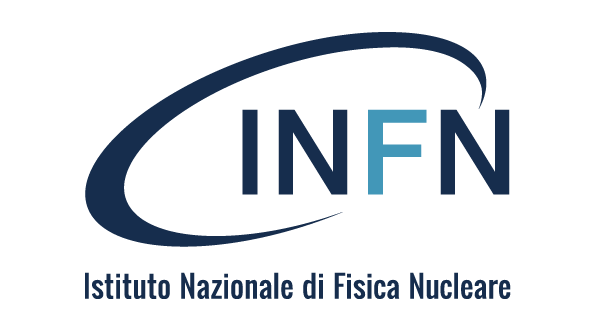

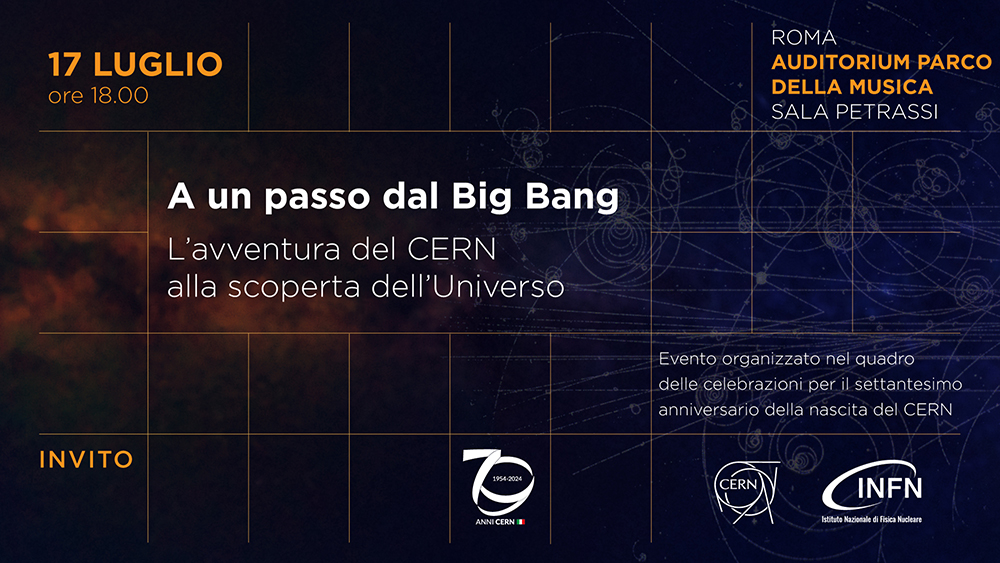 ONE STEP FROM THE BIG BANG: 70 YEARS OF CERN
ONE STEP FROM THE BIG BANG: 70 YEARS OF CERN